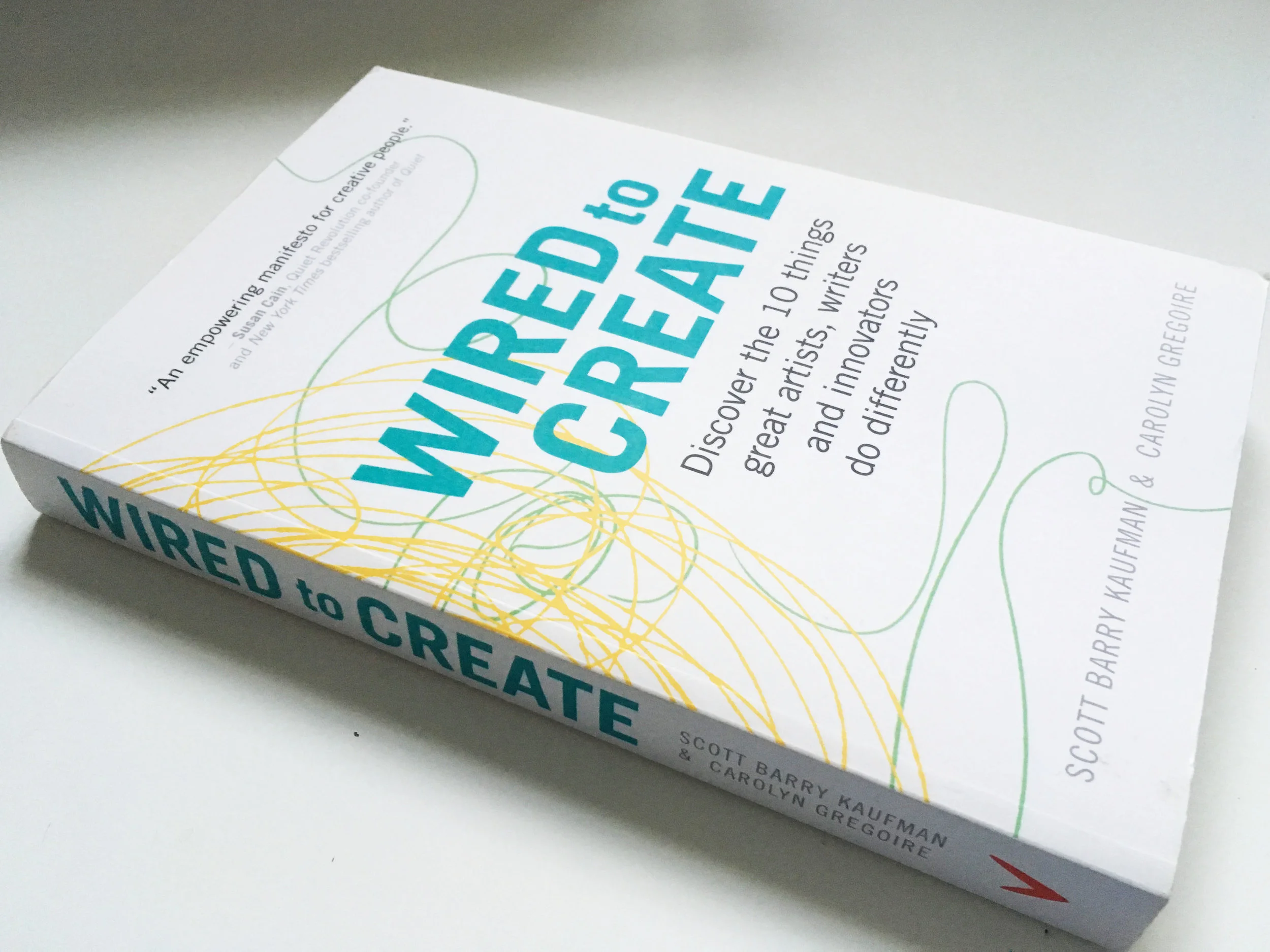I am fascinated by creativity and am always happy to read anything that might give me better understanding about what is happening in the minds of those people I spend a lot of time with – namely highly creative people working in all sorts of disciplines (not just the obvious ‘creative’ arts jobs). I enjoyed this book because not only does it helpfully break down creativity into 10 traits (and thus makes reading it in short bursts at bedtime that much easier) but it is also based on current research in neuroscience and psychology. Because, who doesn’t love pages of notes to follow up with? (Ok, maybe not everyone, but it gives me a nice sense of being in good hands).
To begin with the book looks like it might stumble into some of those old tropes of texts on creativity – the deification of geniuses, the elusiveness of the gift of creativity, the supposed link between creativity and mental illness or suffering – but, no! That’s just the set-up, drawing us in with familiar ideas only to start picking apart this accepted wisdom. In the introduction the authors inform us that research into creativity has been full of contradictions, that creativity at its core is all about complexity. Creative people have ‘messy minds’ and that makes coming up with definitive answers or rules on creativity tricky.
What the book sets out to do is treat creativity as a component of being human, that all people share. Although some people might be able to access it more instinctively, it’s there for all of us:
“…we’ll discuss creativity as a habit, as a way of life, and as a style of engaging with the world. …we’ll argue that we are all, in some way, wired to create and that everyday life presents myriad opportunities to exercise and express that creativity. This can take the form of approaching a problem in a new way, seeking out beauty, developing and sticking to our own opinions (even if they’re unpopular), challenging social norms, taking risks, or expressing ourselves through personal style.”
Through looking at research over the past hundred years, the authors have created a list of 10 ‘habits’ of mind that foster creative skills, processes and ways of being in the world. The habits include: Imaginative Play, Passion, Daydreaming, Solitude, Intuition, Openness to Experience, Mindfulness, Sensitivity, Turning Adversity into Advantage and Thinking Differently. They aren’t claiming that these are the only things creative people do differently, but they are suggesting that people who ‘live a creative lifestyle’ do many of these things. What I found interesting was noticing how many of them felt relevant to me, or to people I know. The book doesn’t necessarily give you tools for cultivating these different aspects – you’ll have to find other people to help with that – but it does offer a great starting point for thinking about these aspects, and a useful index and bibliography for finding out more.
Wired to Create. Discover the 10 things great artists, wirters and innovators do differently- Scott Barry Kaufman & Carolyn Gregoire. Vermillion
